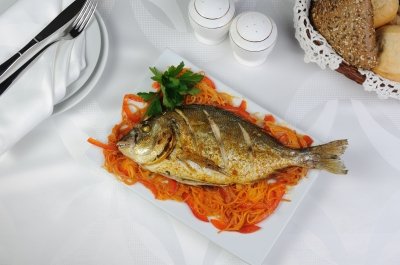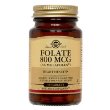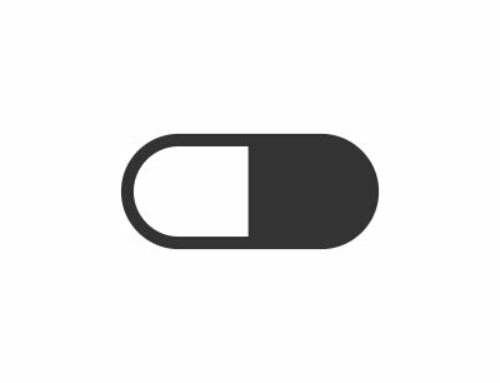
Image credit: apolonia at FreeDigitalPhotos.net
There are some pretty crazy ideas out there in the world, such as if you sleep with a knife under your mattress you’ll have a boy child. Utterly ridiculous but people in some cultures do it.
Also the doggy style position is recommended to couples who wish to conceive a boy (which is probably equally crazy, but at least not so dangerous to try). There is certainly no science, nor any logic to it.
On the other hand, there are things which do work and do improve chances of conception. Such as which diet women eat in the months and years before they get pregant.
When people talk about changes in their diet and report anecdotal improvements in their health we tend to pay attention. Why? Probably because we know, consciously or sub-consciously, that we are generally terrible eaters, or at least often make poor food choices. At least most of us.
One thing is, human beings evolved to eat meat, at least occasionally. Just look at the way our teeth are designed. Not the big flat, square cubes of a plant eater, but sharp, cutting teeth.
Luckily, humans evolved even further and settled about halfway in the middle between meat and plant eater. That’s why we can handle both types of protein with relative ease.
Mediterranean diet and why to eat it when trying to conceive
Interestingly, however, for women trying to get pregnant, especially after age 35, there does seem to be a specific advantage to eating a Mediterranean Diet that focuses on minimally processed plant protein.
It could be that there are ingredients which otherwise become damaged by excessive heat of cooking (such as folic acid) which are preserved in this more “rudimentary” kind of diet.

Image credit: sura nualpradid at FreeDigitalPhotos.net
In this study of 161 Dutch couples undergoing in vitro fertilization (IVF) when interviewed about their dietary choices, it was revealed that their diet was rich in vegetables, fish, legumes, and olive oil. But what i find even more interesting, there was an absence of foods such as snacks (fat, fried in industrial oils) during the 6-months prior to conception. I often wonder, was it the mediterranean eating style or the elimination diet which helped the couples more to conceive a child?
Although it was a small study, the results were interesting enough to encourage others to study the link between diet and getting pregnant. In 2012, a Spanish study of 485 women with conception difficulties reported that the Mediterranean style diet resulted in increased pregnancy rates.
Focus on certain dietary elements seemed to be especially beneficial. These included vegetables such as: broccoli, peppers, potatoes, onions, artichokes, eggplant, celery, lettuce, and tomatoes.
Vegetables which are often eaten in Mediterranean kitchen are: apples, grapes, grapefruit, melons, cherries, dates, and strawberries. Mediterranean kitchen includes many sources of carbohydrates, such as rice, oats, barley, and bulgur. Preferred meat is fish, and some red wine is encouraged with dinner (which may have to do with resveratrol supplement improving egg quality).
This diet preserves folate and vitamin B6, which are both important to improving egg quality. If maintained at optimal levels before conception, folate makes sure that brain and spinal nerves in babies develop well, and continues to protect after birth while breast-feeding.
Some more foods which help conceive faster: Fertility diet
The “Fertility Diet”, investigated by researches from Harvard, tracked 18,000 women over the course of eight years. Sounds like a huge sample, right? Well, not really, as it main results base on a tiny sub-sample of women with infertility due to ovulatory issues.
Nevertheless, this study brought some great insights and for ladies who have troubles ovulating, Fertility Diet may represent THE food choice to make during the time in which they are trying to get pregnant.
Fertility diet emphasises:
1) Plant protein and reduced meat protein
2) It specifically says to avoid trans-fats of any kind (the sort you find in junk food for the most part)
3) Fertility Diet insists that you get a decent quantity of regular fats in your diet, whether by drinking whole milk, full fat ice-cream or full-fat yoghurt.
Moreover it strongly suggests that you get into the “fertility zone” in terms of weight and activity.

Image credit: tiramisustudio at FreeDigitalPhotos.net
In any case, diets high in folate, and which provide plenty of antioxidants, are almost certainly going to be good, whether you call them mediterranen, Harvard, or whatever else.
To conclude, clearly there is some evidence here that the Mediterranean diet seems to be having positive effects in couples who are trying to conceive. Fertility Diet is great, too, especially for women with ovulatory issues.
And if you can add some coenzyme Q-10 like this one to your diet as well, you might increase your chances to conceive even further.
Cooking Show Host
Did you read this article in which TV-Star and Cook Tonia Buxton credits her strict Mediterranean diet for the fact that at 46 she has the fertility levels of a woman in her 30es?
I don’t know whether she reads scientific studies on improving egg quality, but I certainly don’t think her case is anecdotal.
Ms. Buxton had an ultrasound and found that she was producing seven eggs at the age of 46, whereas other women of her age (or much younger) produce only one or two. As the matter of fact, doctors said she would likely produce viable eggs well into her 50s. How is that possible?
Her strict regimen of a Mediterranean Diet is rich in olive oil and garlic which she says keeps her young-looking and, apparently, highly fertile. It wouldn’t be unusual for her to eat a meal which would include meatballs mixed with broccoli, spinach, along with pulses, and peppers stuffed with wholemeal rice.
She looks surprisingly fit for someone who doesn’t spend every single day at the gym working out–not that she would have the time with four children. Of course it’s not necessary considering that she never eats fast food such as greasy burgers from a chain restaurant, nor does she eat candy or chocolate bars like the people she sees commonly walking down the street.
Or this women just happens to be a fertility bomb, maybe doctors should sequence her genes and let us know what they found? I would certanly love to know.
See you again soon,
Darja
Folic acid (and a few good books about Mediterranean kitchen):










